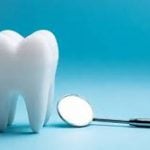Table of Contents
What is dental and oral problems?

Dental and oral problems may affect your overall health. Ignoring dental and oral problems can make it difficult to eat, talk, chew, or swallow. Fortunately, with good care, you can lower the risk of these side effects and manage them if they do happen. Many cancer treatments have side effects that damage patient’s mouth, teeth, and salivary glands.
How bad are my dental and oral problems?
Mild: You may feel sudden sensitivity to hot and cold temperatures or beverages, mild toothache and frequent dry mouth.
Moderate: The typical symptoms are chronic bad breath, clicking of the jaw, cracked or broken teeth and swollen cheeks.
Severe: You may have bleeding or swollen gums after brushing or flossing. Other symptoms involve loose teeth, pain with chewing or biting and mouth ulcers or sores that won’t heal after a week or two. It is an emergency that requires immediate treatment under your doctor’s supervision.
How to manage dental and oral problems?
Keep track of your dental problems using Ankr (myAnkr web portal or the Ankr app). It will help you describe the discomfort to your doctor or nurse.
- Gently brush your teeth 2 times a day and floss regularly. Use a child-size, soft toothbrush if your regular brush is too bulky or uncomfortable.
- Avoid alcohol and extreme textures and flavors in your diet.
- Consider eating soft and mild food. Extremely hot, cold, spicy, acidic, or crunchy foods may irritate your mouth.
- Lower your sugar intake. The bacteria in your mouth use sugar to live, and this process makes the acid that causes tooth decay.
- Promote good bone health. Getting enough vitamin D and calcium each day helps your jaw and teeth stay strong and healthy.
- Dairy products are good sources of calcium and vitamin D. Other food choices may include fortified juice and fortified breakfast cereals. Talk with your health care team before taking any supplements.
- Mouth rinses that contain salt and baking soda may help treat mouth sores
- Drinking water may help manage dry mouth. Sucking on ice chips or having sugar-free chewing gum with xylitol may help. Avoid things that will dry out the mouth (soda, fruit juice, cigarettes, chewing tobacco, and alcohol).
When to visit a doctor?
If any of the above symptoms are accompanied by a high fever and facial or neck swelling, you should seek emergency medical treatment.
What causes dental and oral problems?
- Radiation therapy to the head and neck
- Chemotherapy
- Immunotherapy
- Targeted therapy
- Bone-modifying drugs
- Poor oral hygiene
- Poor eating habits
